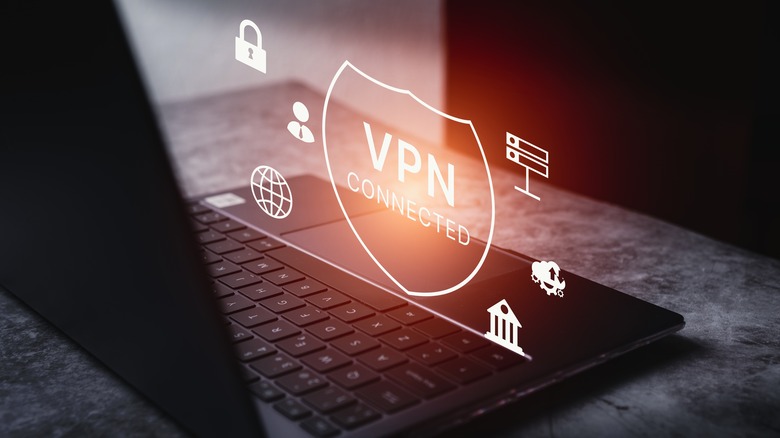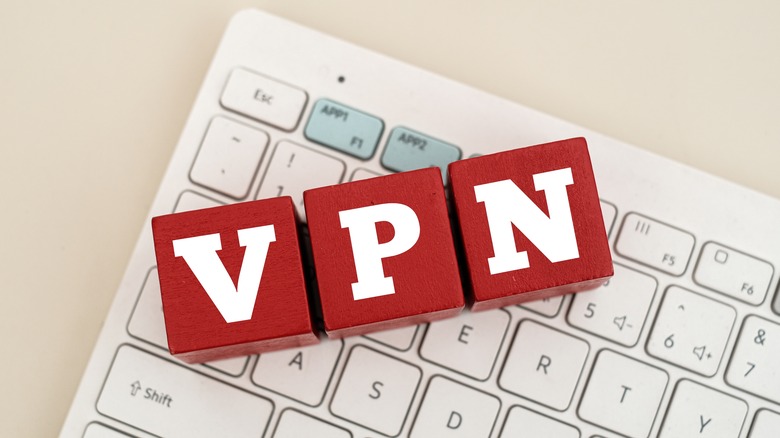Why A VPN Works Better When You Use A Server Closer To Your Location
Virtual private networks (VPNs) are a key way of staying safe online, as they boost privacy and security while you browse the web. They're also convenient tools for a variety of other online activities, as they let you pretend you're browsing from a different location than where you really are. If you're trying to access content that's restricted in your region, then this can be helpful. However, using a VPN server that's far away can cause some connection problems.
When you choose which location to set your VPN to, you're also choosing which server you're connecting to. For example, if you set your VPN to London, you're connecting to a server around there. The farther away the server is, though, the slower your speeds are likely to be, due to both distance and latency.
If you're using a VPN to stay anonymous while browsing, try connecting to a server that's close by — one in your own country might do the trick. However, if you're trying to connect to a server in another country for a specific reason, such as evading censorship or accessing location-specific content, then try and pick somewhere as close by as possible in the relevant country. Alternatively, try to pick the nearest applicable country to you. An example would be connecting to a server in Dublin if you're based in the United States and need to access something in Europe.
Latency and distance affect your VPN connection speeds
Networks transfer data from one point to another, which takes time to happen; this delay is referred to as latency. Physical distance is one of a few things that can increase the latency on a network. When you connect to a server using a VPN, you're altering your network, and if the server is based in a far-away place from where you are, then you're increasing the latency faced by your network.
If you absolutely need to access information limited to a certain area, then you can still connect to those distant servers. But, if you're concerned about how well your VPN works or how fast your internet speed is, then you should stick to connecting to somewhere nearby.
Virtually geolocated servers can throw a spanner in the works when you're choosing a location to connect to, though. These types of servers are simulated, working in virtualized environments. This means that they don't really have physical locations where they claim to, instead operating by spoofing their location. Essentially, these servers could be based in one country while providing a network connection that appears to be in another location entirely. While this method still tends to work, it means that choosing a server closer to your location won't make any difference in the speed or strength of your connection.

